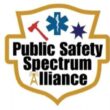NPSPAC licensees begin rebanding
Multiple National Public Safety Planning Advisory Committee, or NPSPAC, licensees have finished their 800 MHz rebanding work and are operating on new frequencies, and work has begun on a band plan with Canada that could allow licensees on the northern U.S. border to begin their work in earnest, according to Transition Administrator and FCC officials.
“It’s been said before: [Rebanding] is not as far along as we’d like, but it’s making steady progress,” TA representative Dave Buchanan said during a session focusing on rebanding at the Association of Public-Safety Communications Officials (APCO) conference in August.
Of the “almost 900” licensees in Waves 1-3 of Stage 2, 340 have reached a reconfiguration agreement with Sprint Nextel, Buchanan said. Four NPSPAC licensees have finished their rebanding work, although some of them have not executed the closing procedures to be deemed “completed” with rebanding. Buchanan noted that the NPSPAC licensees that have finished rebanding typically have systems that are not very complex or large. “Keep in mind that they’re not giant ones,” he said.
In terms of rebanding larger systems, one problem is that Sprint Nextel needs several NPSPAC licensees to reband at the same time, so the wireless carrier has enough spectrum available to maintain its iDEN network, Buchanan said.
“What happens is that Nextel has to shut down in the [Channel] 1-120s so that … public-safety licensees can move down there,” Buchanan said. “At the same time, they can’t start using the old NPSPAC frequencies, so they have a tough balance of trying to keep their network going and freeing up channels [for public safety].”
Recognizing this difficulty, the TA has conducted regional implementation meetings in Colorado, Utah, Kansas and northern California so all licensee parties can identify interoperability needs and provide input on the logistics associated with retuning radios. Other regional implementations expected to be conducted this year include Kentucky, Iowa, metropolitan New York, Illinois, Indiana, Minnesota, Oklahoma, Nebraska, Oregon, New England, Nevada, Virginia, Missouri and Tennessee.
Meanwhile, some signs of progress also are being made in border negotiations that are designed to lead to treaty agreements to enable much of Wave 4 to proceed with rebanding.
David Furth, associate chief of the FCC Public Safety and Homeland Security Bureau (PSHSB), said FCC officials have been meeting with Canadian officials to establish a band plan on the northern U.S. border. While news on the Canadian front could be announced within a couple of months, Furth said it would take longer to achieve similar progress along the Mexican border.
In addition, the PSHSB will issue a public notice designed to ensure that the Transition Administrator and mediators “are not bringing the same issue back to us over and over and over,” PSHSB Deputy Bureau Chief Dana Shaffer said.
“As those are rolled out and that precedent is set, you won’t see Sprint come back on the same issues,” Shaffer said during a panel at the APCO conference. “You will be seeing things rolled out that should make things go more quickly, so just stay tuned.”
Regardless of how quickly border negotiations and regional implementations progress, no one associated with rebanding believes the entire process will be done by the FCC’s deadline of June 27, 2008. But there will be no extension of the deadline, FCC PSHSB Chief Derek Poarch said during the APCO conference — a sentiment that was reiterated by FCC Chairman Kevin Martin.
Although there will be no blanket extensions of time, FCC officials emphasized that licensees working in good faith to reband would have the time they need, as well as the funding. Amid speculation that expenses claimed after next year’s deadline might not be paid by Sprint Nextel, Furth said that will not be an issue as long as NPSPAC licensees continue to move forward.
“You will receive the funding that you need when you need it,” Furth said. “If you’re operating in good faith, then you’re OK.”
REBANDING PIONEERS
NPSPAC licensees who have cleared their channels and are operating on their new channels, as of Aug. 21:
WAVE 1
Lakewood, Colo.
Wheat Ridge, Colo.
Watertown, Mass.
WAVE 2
Liberty, Mo.
Source: 800 MHz Transition Administrator













